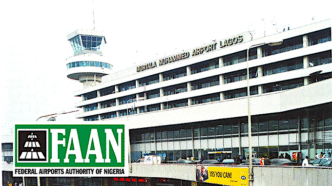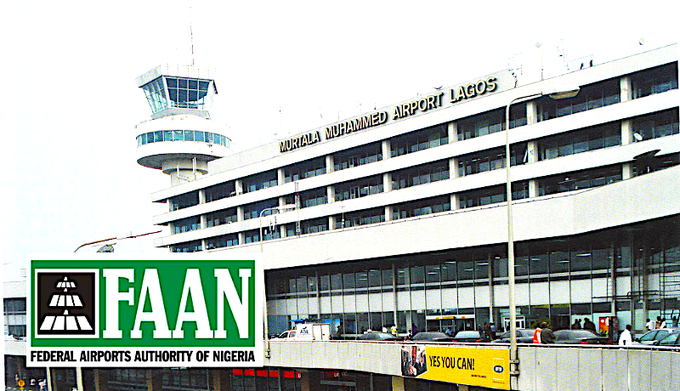The Federal Airports Authority of Nigeria (FAAN) has announced that beginning September 29, 2025, all payments at its revenue points across airports in the country will transition to a fully digital system. This includes payments at airport access gates, car parks, VIP and protocol lounges, and other designated service points.
According to FAAN, the move is aimed at modernizing its operations, improving transparency, enhancing passenger convenience, and aligning with Nigeria’s growing digital economy. The agency emphasized that the era of cash transactions at airports is gradually coming to an end as digital platforms become the standard for financial dealings.
End of Cash Payments at Nigerian Airports
In a statement released by the authority, FAAN confirmed that the new system would apply uniformly across all federal airports in Nigeria. This means that travelers, motorists, and airport users who rely on FAAN services will no longer be able to make cash payments. Instead, they will have to use digital channels such as debit and credit cards, bank transfers, mobile apps, and other approved electronic payment solutions.
A senior FAAN official explained that the decision was long overdue, noting that the digitalization of payment processes would reduce revenue leakages, curb corruption, and improve accountability. The official added that the change will also align FAAN with international best practices, where cashless airport operations are becoming increasingly common.
Why FAAN is Going Digital
The push for digital payments is part of FAAN’s broader revenue automation strategy, which seeks to eliminate loopholes and strengthen the financial sustainability of the authority.
Some key drivers of this move include:
- Transparency and Accountability – By cutting out cash transactions, FAAN expects to minimize human interference and ensure that every kobo collected goes directly into government accounts.
- Passenger Convenience – Travelers no longer need to carry cash to access airport services, making transactions faster and more efficient.
- Global Alignment – With most advanced airports worldwide already adopting cashless systems, FAAN’s new policy positions Nigerian airports to meet international operational standards.
- Curbing Revenue Leakages – FAAN has historically struggled with incomplete remittances due to manual cash handling. A digital system closes such loopholes.
- Security – Eliminating cash reduces risks of theft, fraud, and disputes between staff and customers.
Services Affected by the New Policy
The transition will affect multiple revenue-generating points across airports. These include:
- Access Gates – All vehicles entering airports will now pay digitally through POS machines, QR codes, or online pre-payment portals.
- Car Parks – Short-term and long-term parking fees will be made through automated payment systems.
- VIP and Protocol Lounges – Access fees for business-class lounges and protocol services will now be strictly digital.
- Commercial Permits – Vendors, concessionaires, and service operators at airports will also be required to settle payments electronically.
This change affects both passengers and businesses operating within the airport environment.
FAAN’s Preparedness for the Transition
Ahead of the September 29 rollout date, FAAN disclosed that it has partnered with leading financial service providers and fintech companies to deploy the necessary infrastructure for smooth operations. Point-of-Sale (POS) terminals, mobile payment platforms, and automated access control systems are being installed at all affected points.
Training sessions for staff members have also begun to ensure they can effectively manage digital transactions and assist customers in navigating the new system.
Furthermore, FAAN plans to run a nationwide awareness campaign targeting airport users, drivers, airlines, and concessionaires to educate them about the change. This will include signages at airports, social media campaigns, and radio announcements.
Implications for Travelers and Businesses
The policy marks a significant shift for Nigeria’s aviation industry, and both travelers and businesses are expected to adjust quickly.
For passengers, the elimination of cash payments means they must come prepared with functional digital payment tools. For example, a traveler driving to the airport will need to have a working debit card or a mobile banking app to pay at the access gate or car park. Similarly, VIP lounge access will now be processed electronically.
For businesses, particularly vendors and service providers within airports, the policy provides a more secure and traceable transaction system. However, they must also ensure they have compatible payment channels to avoid disruptions.
Public Reaction and Concerns
While many Nigerians have welcomed the policy as a step toward modernization, some concerns remain.
- Network Failures: With Nigeria still grappling with irregular internet connectivity and POS downtimes, there are fears that technical issues could inconvenience travelers.
- Exclusion of Non-Digital Users: Some passengers, particularly elderly citizens and those without bank accounts, may face difficulties adapting to the cashless policy.
- Implementation Gaps: There are questions about how FAAN will manage resistance from individuals accustomed to cash payments and how it will enforce compliance across all airports.
FAAN has assured the public that backup systems will be in place to minimize disruptions. The authority also hinted at providing alternative solutions for passengers in exceptional cases, although details have not been disclosed.
Digital Economy and Aviation Sector
The FAAN initiative reflects Nigeria’s broader cashless economy drive, championed by the Central Bank of Nigeria (CBN) and other government agencies. Over the past decade, Nigeria has seen rapid growth in electronic banking, mobile money, and fintech adoption.
By extending this transformation to the aviation sector, FAAN is contributing to the national digitalization agenda while also ensuring the sustainability of airport operations.
Industry experts note that the move could attract more international airlines and investors, as transparent systems are key to building confidence in Nigeria’s aviation infrastructure.
International Comparisons
Globally, many airports have already moved toward cashless systems. In countries like the United Arab Emirates, the United States, and the United Kingdom, airport services such as parking, lounge access, and even retail payments are predominantly digital.
Nigeria’s adoption of this model is expected to improve its ranking in global aviation competitiveness, especially as more passengers demand seamless, technology-driven services.
What Happens After September 29, 2025
FAAN has made it clear that the deadline is final. From September 29, no airport access gate, car park, or VIP lounge will accept cash payments. Enforcement teams will be on the ground to monitor compliance, and defaulting businesses may face penalties.
Travelers are therefore advised to prepare ahead of time by ensuring they have access to digital payment options. FAAN has also urged concessionaires to integrate with approved payment platforms before the deadline.
Conclusion
The Federal Airports Authority of Nigeria’s decision to mandate digital payments across all its revenue points marks a historic milestone in the modernization of Nigeria’s aviation sector. While challenges such as network issues and user adaptation remain, the benefits of transparency, efficiency, and alignment with global best practices make the transition inevitable.
As the September 29, 2025 deadline approaches, Nigerians—whether frequent flyers, business operators, or casual visitors to airports—will have to embrace the new era of cashless transactions at airports. FAAN insists that this transformation is not only about boosting revenue but also about ensuring that Nigeria’s airports can compete globally in efficiency, security, and passenger experience.














